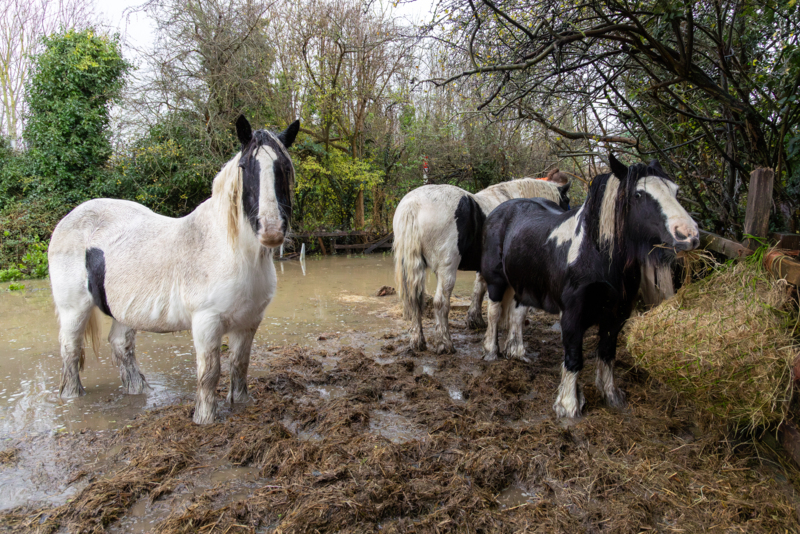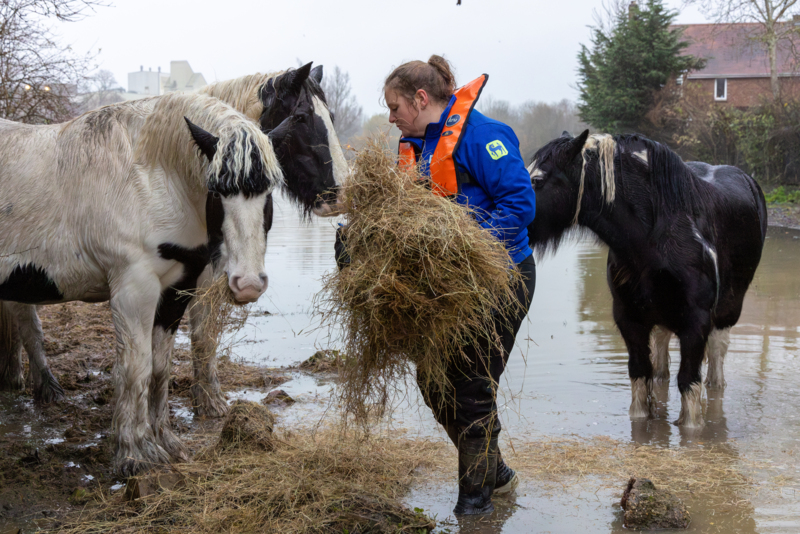A team of animal rescuers, welfare officers and the emergency services combined earlier this week to help three flood-stricken horses in Wellingborough, Northamptonshire.
Members of the public reported concerns for the horses on Tuesday morning (26 November) after heavy overnight rainfall had left the horses up to their bellies in flood water in the field where they live on Turnells Mill Lane.
The RSPCA, Animals in Need, a vet and Northamptonshire Fire & Rescue worked together to monitor the horses and attempted to secure them on Tuesday afternoon.
Unfortunately, due to the high level of water, the horses were unable to be secured on Tuesday. However, the water receded overnight, exposing areas of dry standing so the following morning (Wednesday), the RSPCA was able to provide the horses with hay and forage.

Food delivery
“I’m very pleased to say that currently, the horses are now safe and well as the water level has reduced and revealed dry areas for them to stand, and we were able to provide them with some hay this morning – which they seemed very grateful for,” said RSPCA inspector Jason Finch, national water rescue coordinator at the RSPCA.
“We want to thank everyone who was concerned about the horses and reported them to us, and hope they are reassured that collectively we carefully monitored them over the last few days to make sure we could do everything we can to help them if needed.
“The horses are not well-handled which posed a challenge for us, and a vet was present to offer advice, but thankfully, we are confident that the horses are no longer at immediate risk.”
The RSPCA are trying to locate the owner of the horses to ensure their safety going forward.
The charity has over 30 specially trained officers and a fleet of emergency rescue boats that can be launched for water rescues of animals. The water rescue teams are trained to operate in fast-flowing and contaminated water, and can be called upon to assist in rescuing animals, people and provide assistance to communities affected by flooding.









